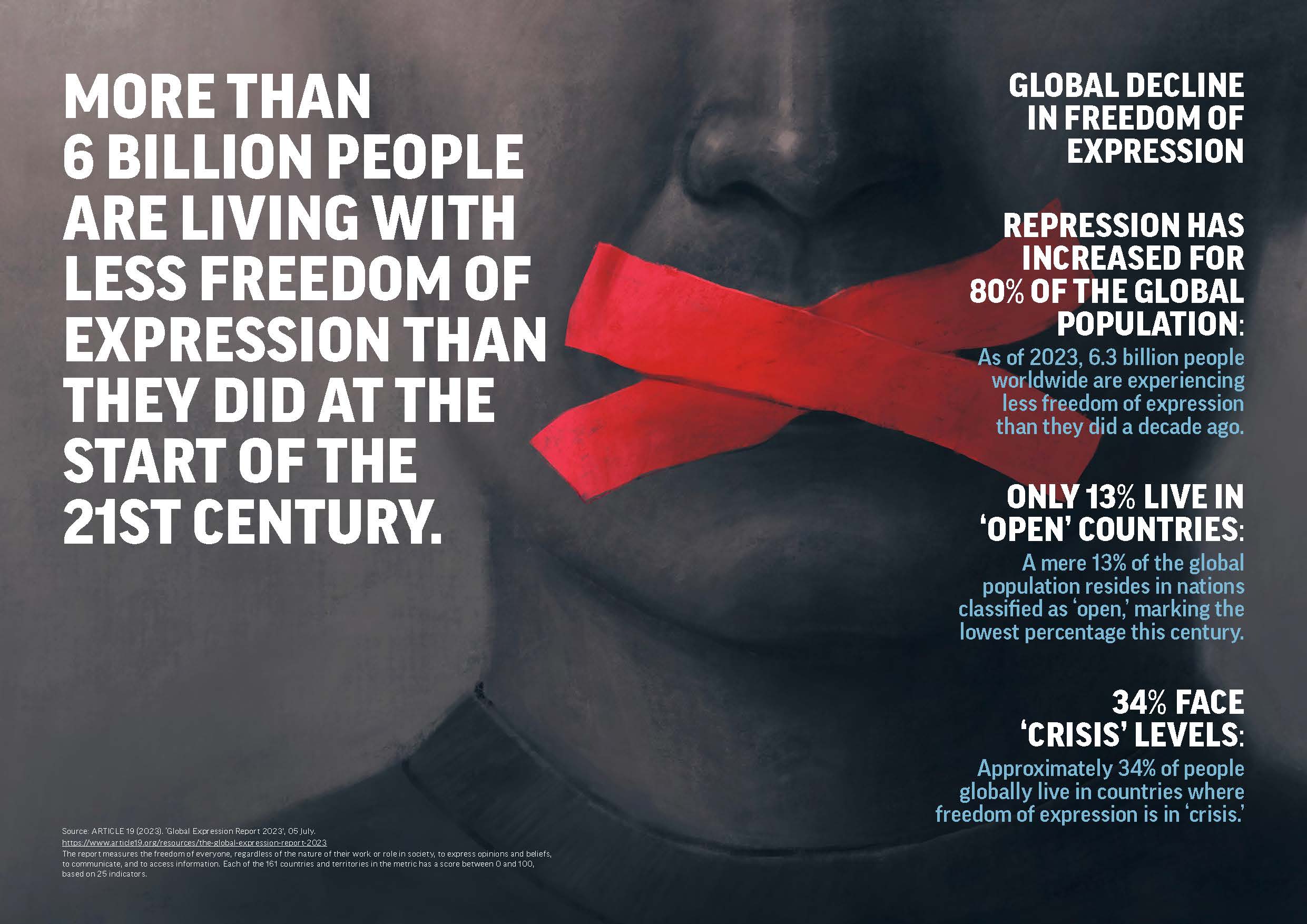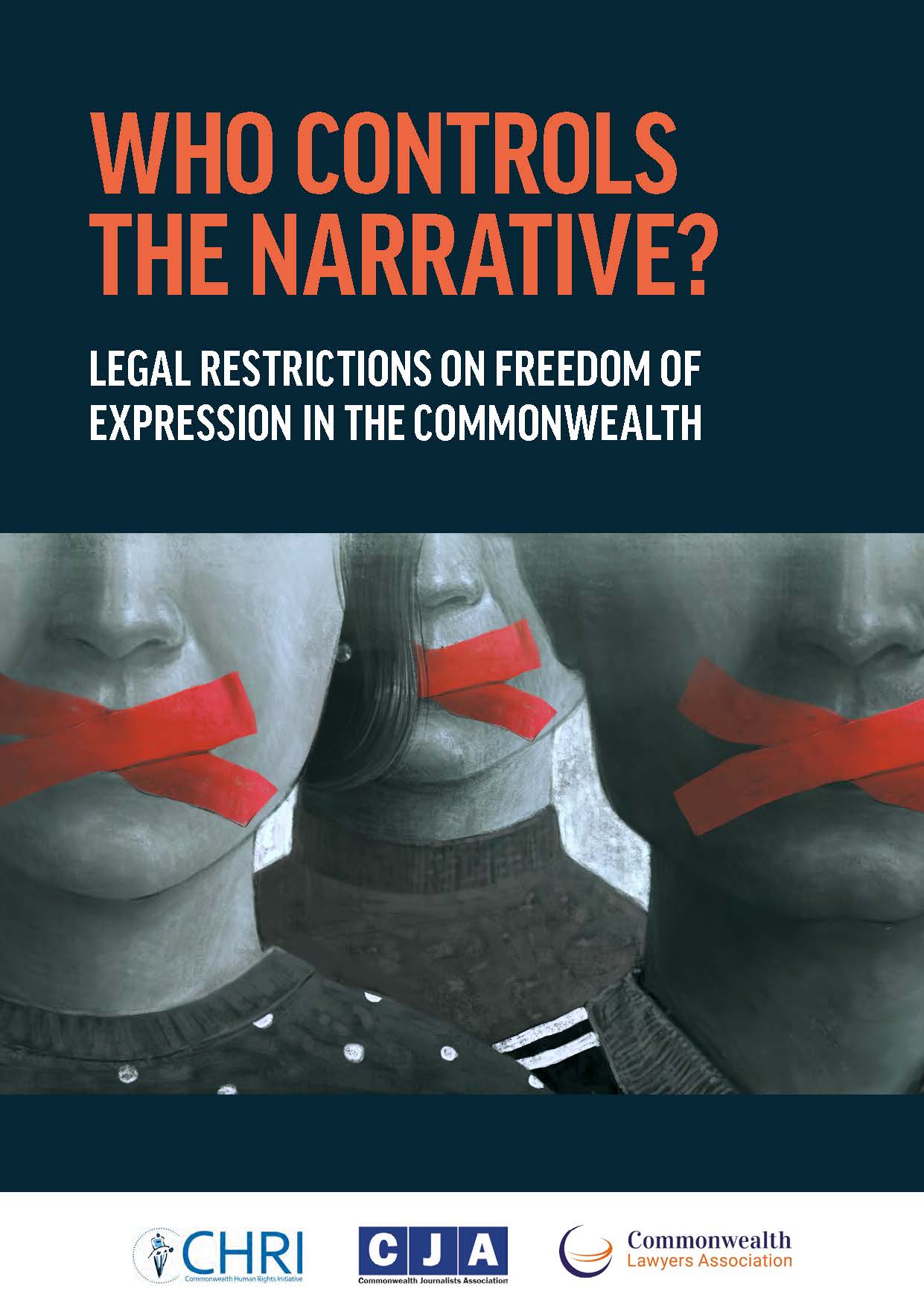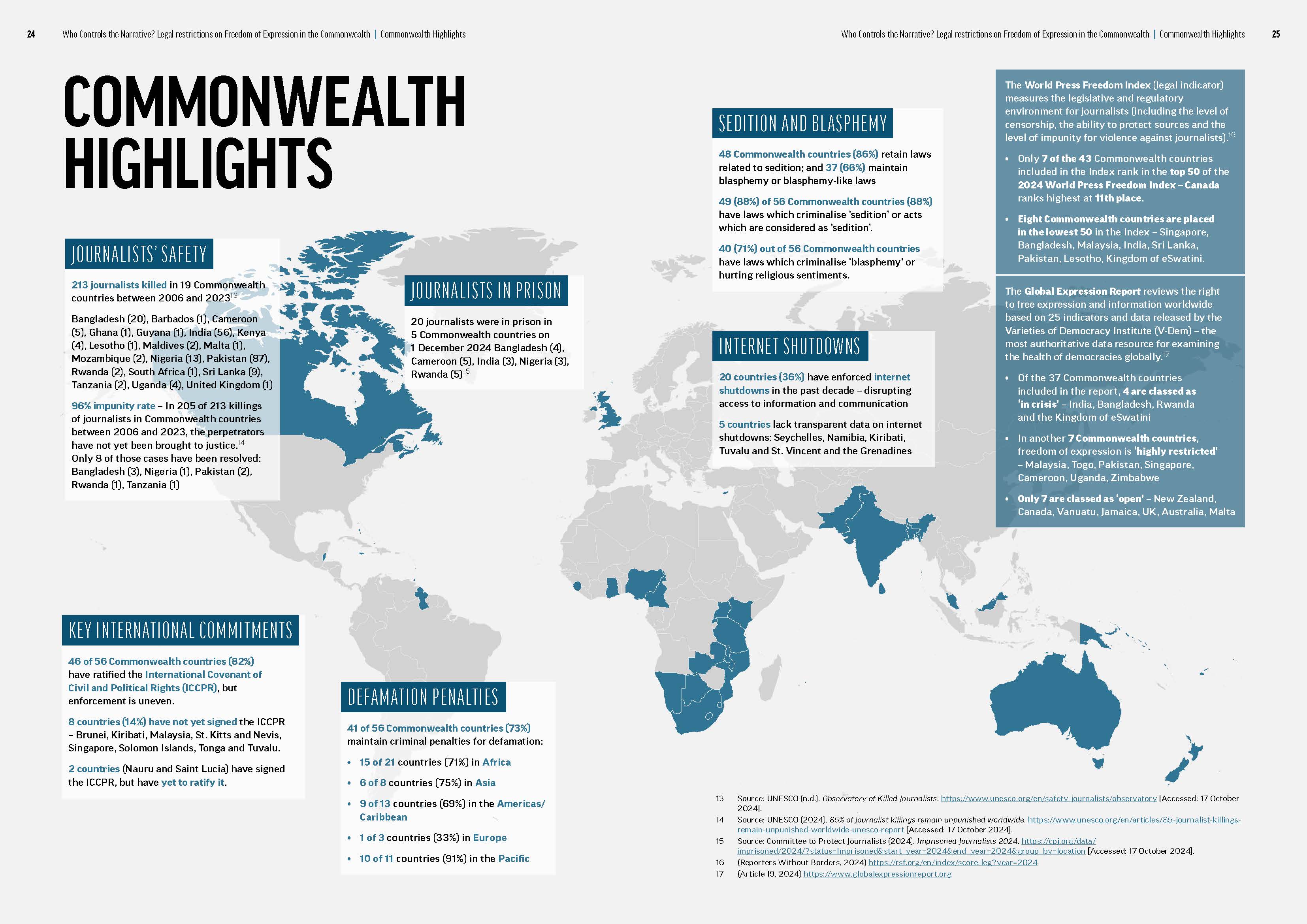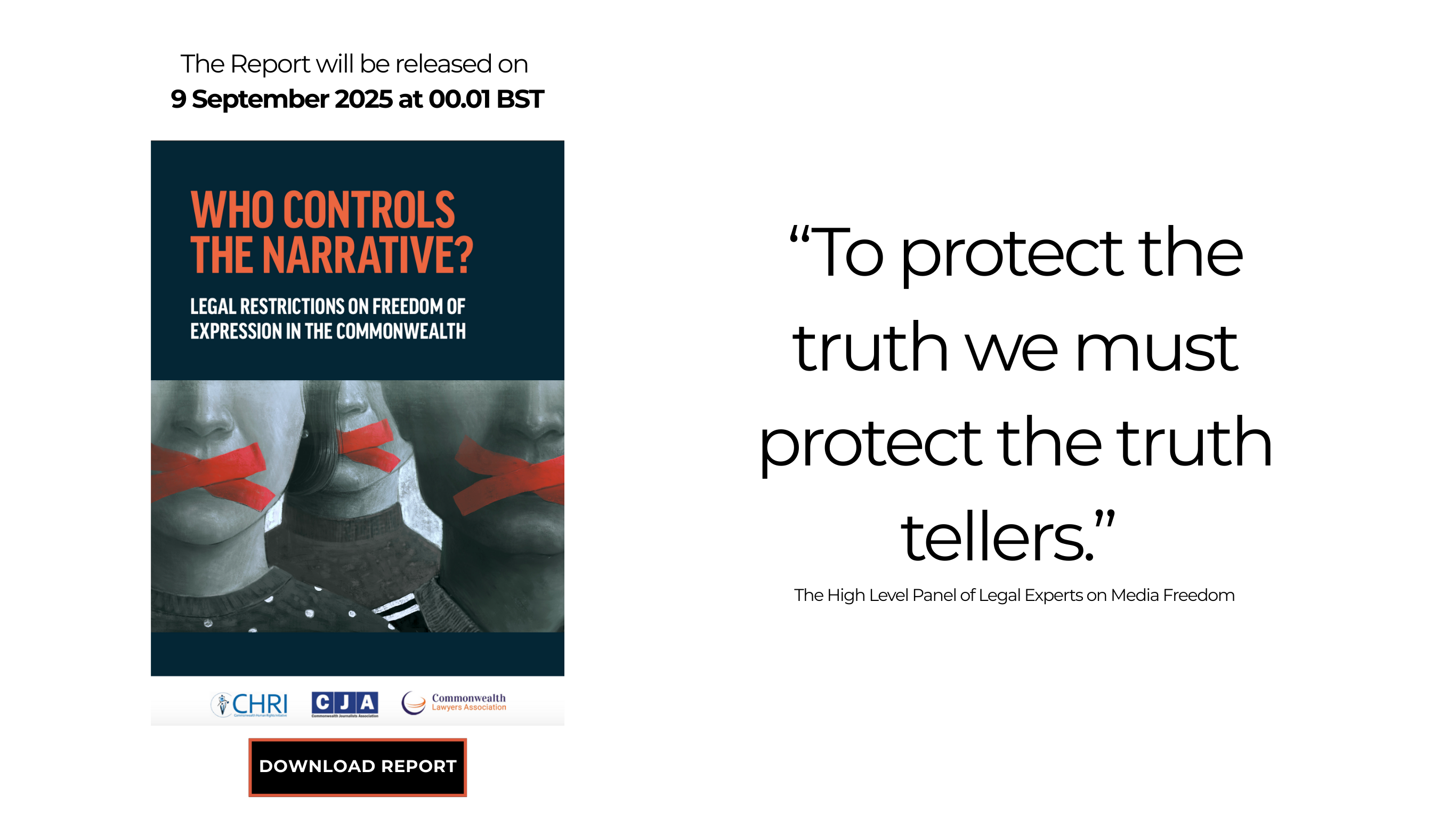Who Controls The Narrative Freedom of Expression Report
* NEW PUBLICATION *
WHO CONTROLS THE NARRATIVE?
LEGAL RESTRICTIONS ON FREEDOM OF EXPRESSION IN THE COMMONWEALTH
The Report will be released on 9 September 2025 at 00.01 BST

This report is a collaboration between the Commonwealth Human Rights Initiative, the Commonwealth Journalists Association, and the Commonwealth Lawyers Association, highlighting how criminal laws across the Commonwealth are misused to restrict free expression and media freedom.



Defamation, sedition, and blasphemy laws, many inherited from colonial rule, continue to silence journalists, activists, and political opponents. Violence and intimidation are widespread, with impunity rates for killings of journalists at 96 percent. Despite some progress, most Commonwealth Member States have failed to reform abusive laws or ensure accountability.
Following the 2024 adoption of the Commonwealth Principles on Freedom of Expression and the Role of the Media in Good Governance, the report offers global and regional recommendations, urging coordinated action, legal reform, and stronger protections for freedom of expression as a vital pillar of democratic governance.
Recommendations
Commonwealth governments are urged to:
Strengthen legal frameworks
-
Align national legal frameworks with international human rights standards. Any restrictions on freedom of expression should comply with international human rights law.
-
Ratify and implement international treaties, including the International Covenant on Civil and Political Rights (ICCPR).
-
Enact robust right to information legislation.
-
Enact appropriate defences to defamation laws.
Promote judicial independence, due process guarantees, and access to justice
-
Strengthen judicial independence
-
Combat impunity
-
Ensure access to effective remedies, and due process and fair trial guarantees are clearly set out in law and respected in practice
-
Adopt anti-SLAPP (Strategic Lawsuit Against Public Participation) measures
-
Establish and maintain independent media regulatory and oversight bodies
-
Promote media pluralism
-
Refrain from imposing internet or communications shutdowns or censorship of critical voices
-
Support digital literacy
-
Ensure online platforms abide with their human rights responsibilities
Protect journalists and foster a vibrant civil society
-
Protect journalists by strengthening national legal frameworks to address journalists’ safety and access to justice
-
Create an enabling environment for journalists and for civil society organisations
-
Establish safeguards against surveillance and intimidation of journalists.
-
Take special measures to protect disproportionately targeted groups, including women journalists
-
Support global and regional civil society initiatives
-
Protect freedom of association
Establish and strengthen accountability mechanisms
-
Strengthen the Commonwealth Ministerial Action Group (CMAG)
-
Strengthen and adequately resource the Commonwealth Secretariat
-
Establish a Commonwealth Special Envoy on Freedom of Expression
-
Engage with international and regional human rights institutions and mechanisms
-
Join and engage with the Media Freedom Coalition
